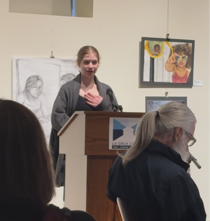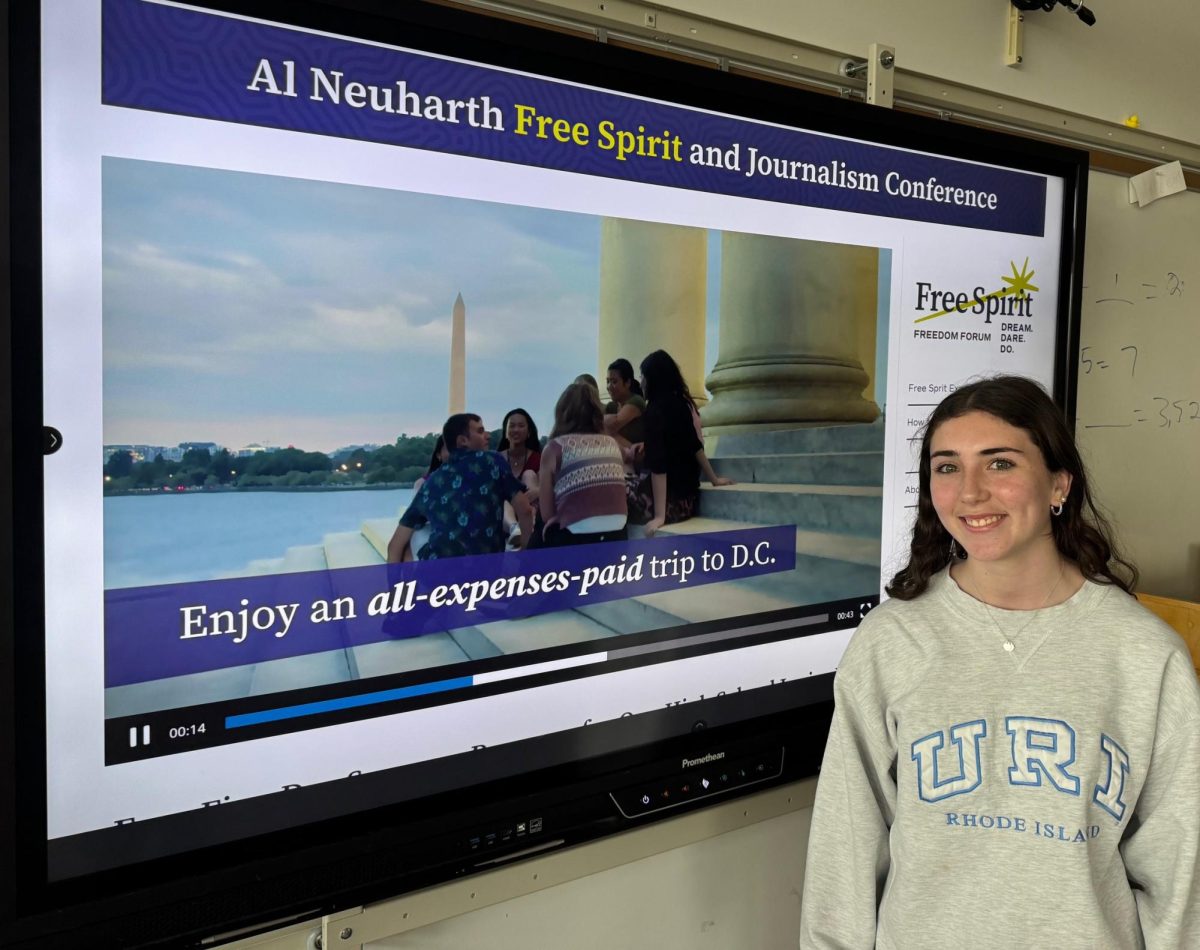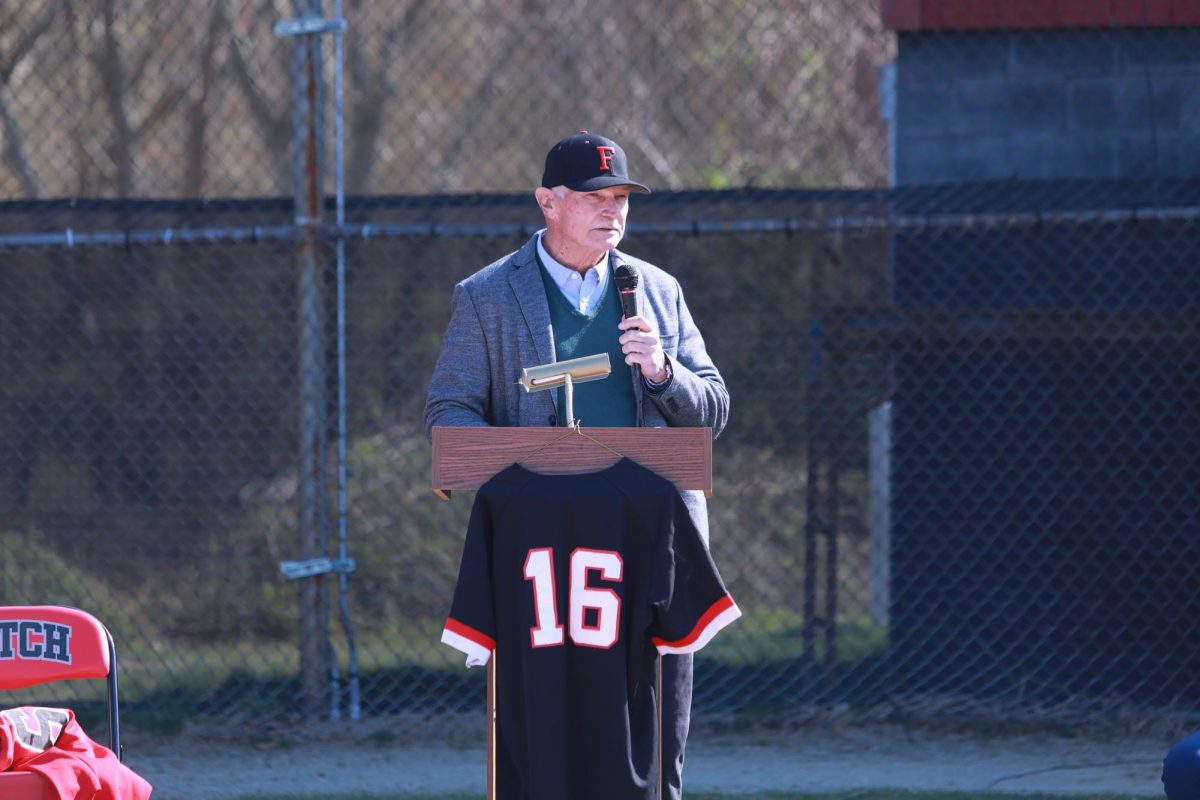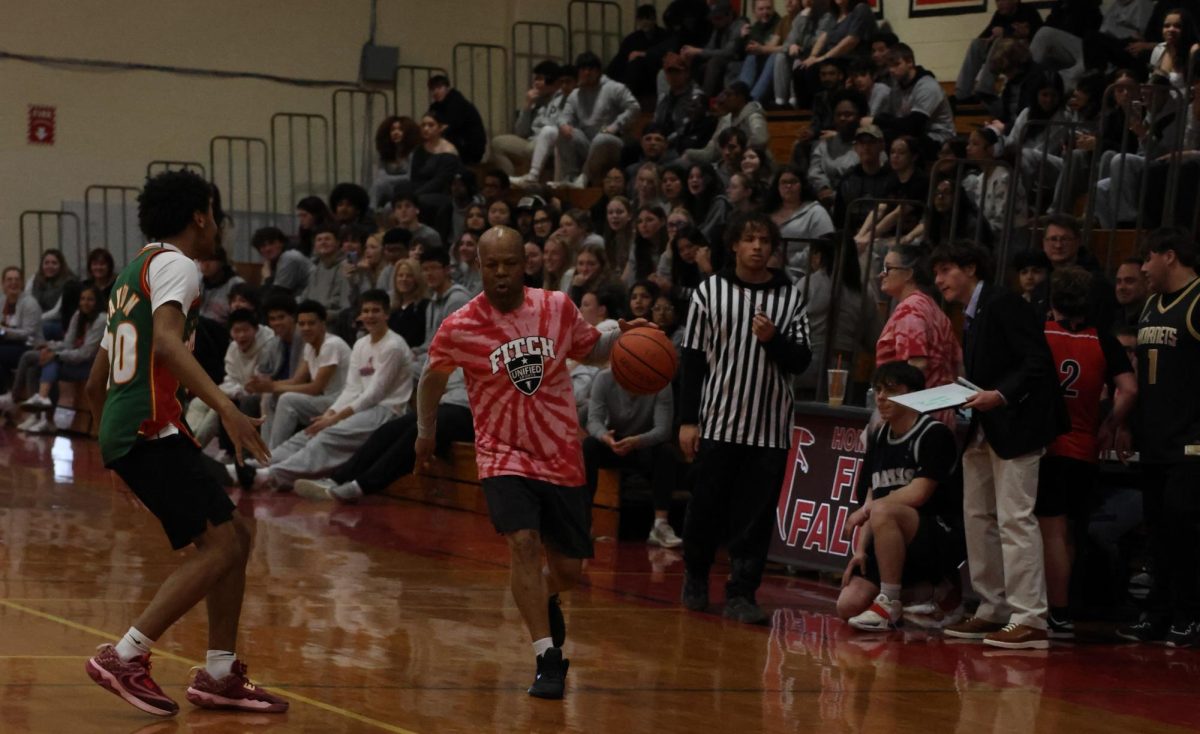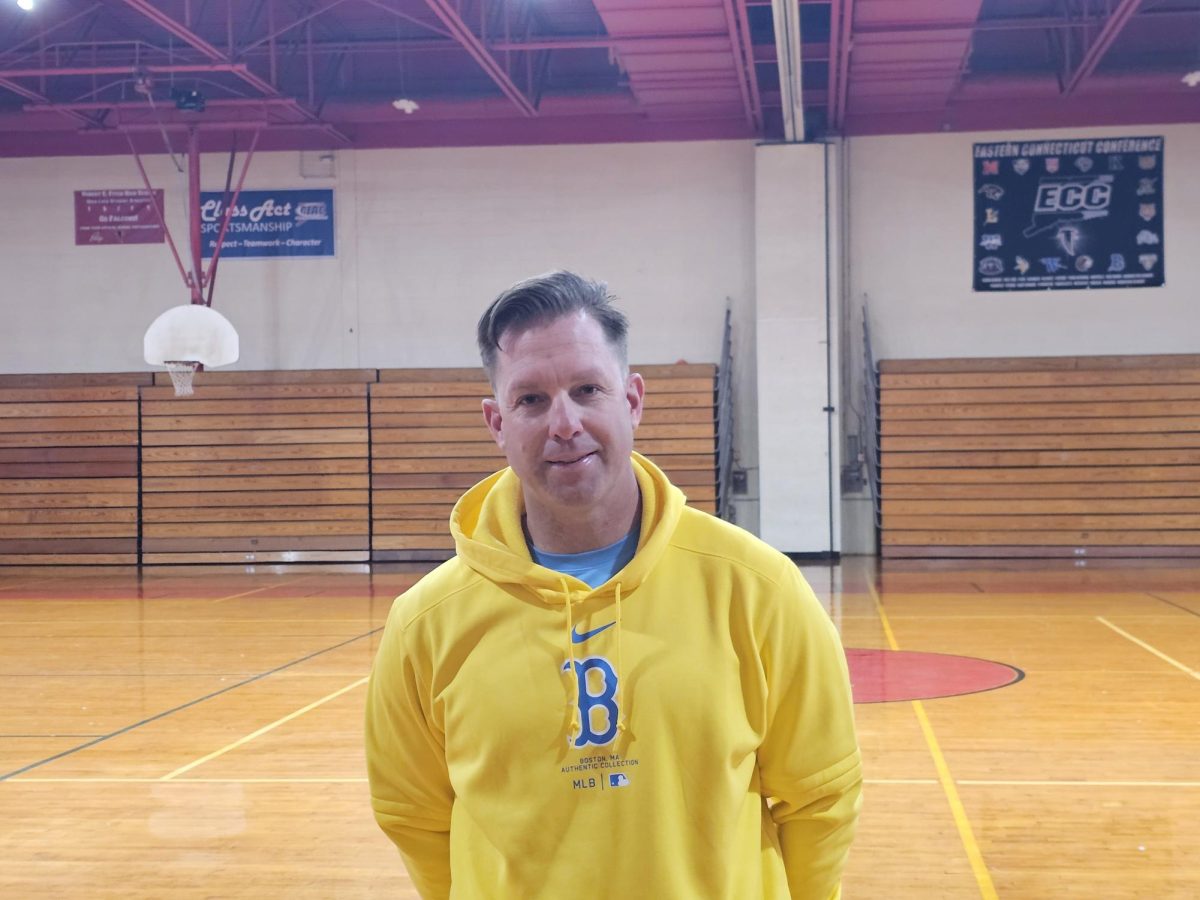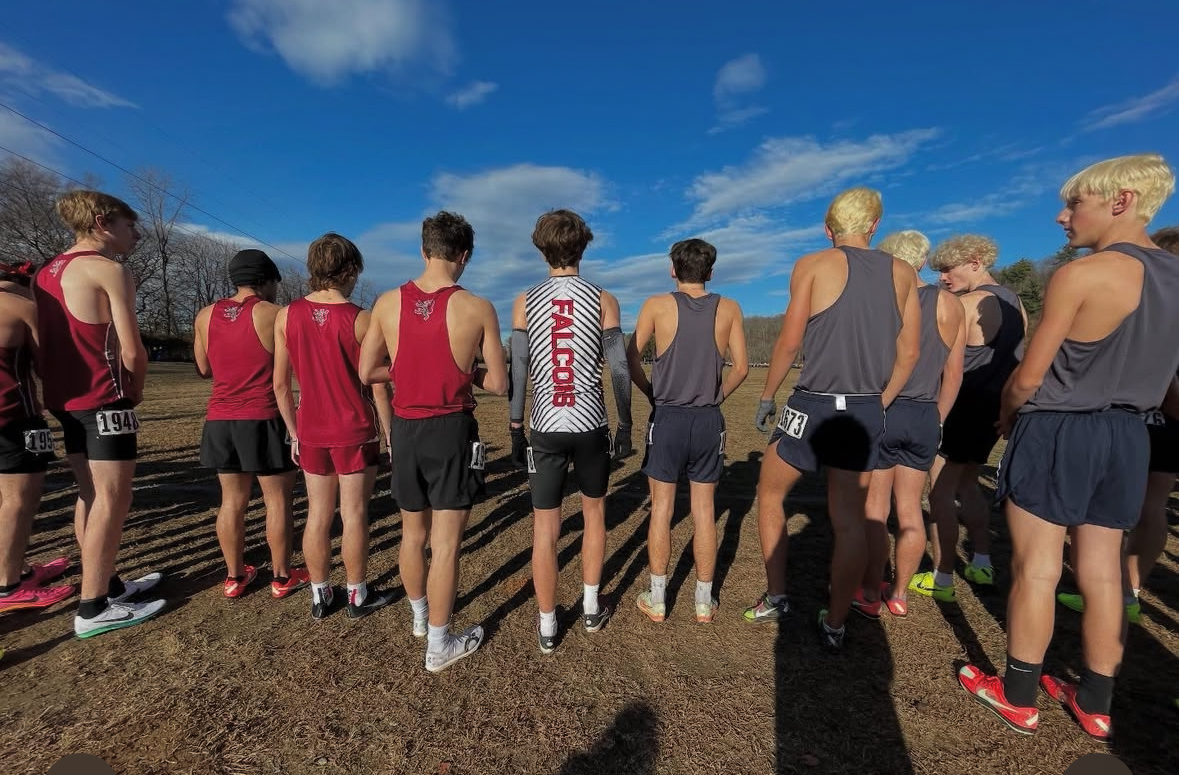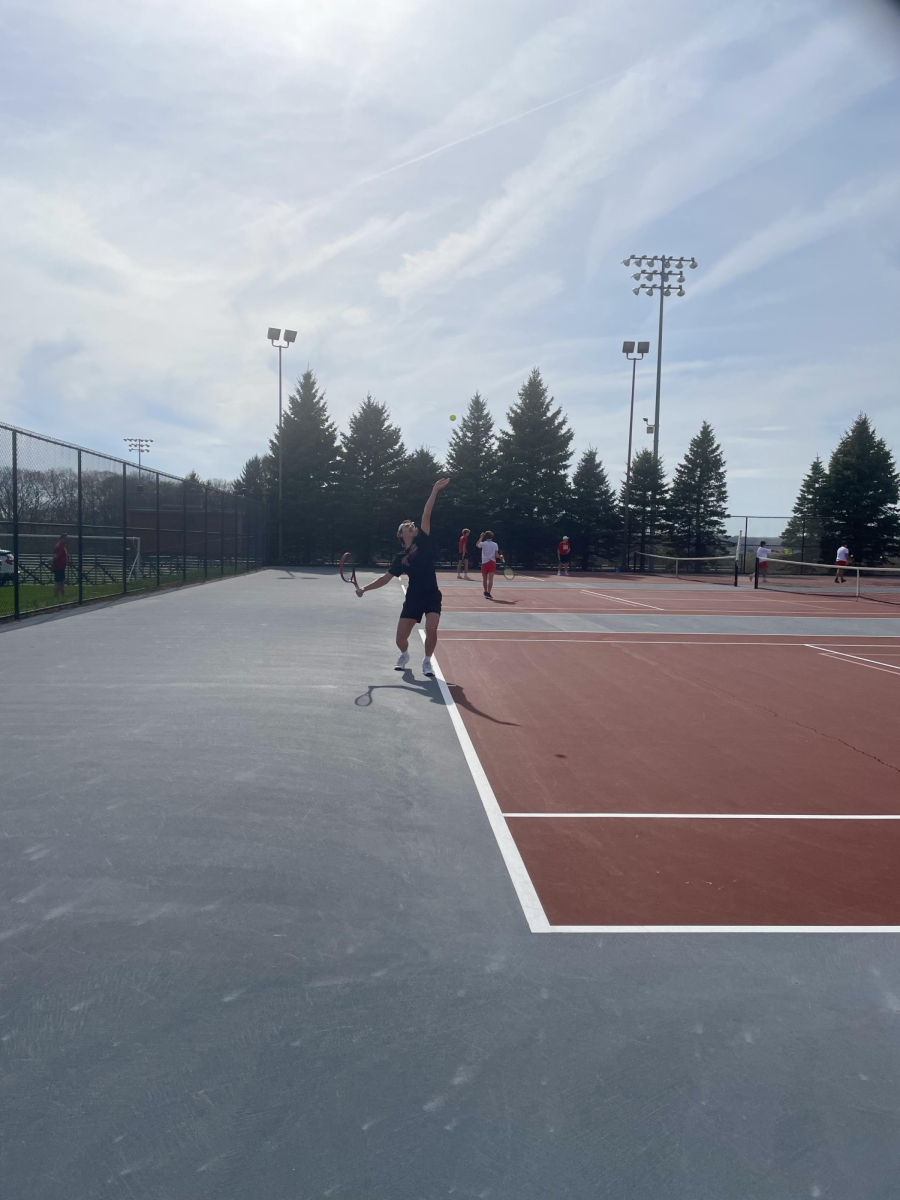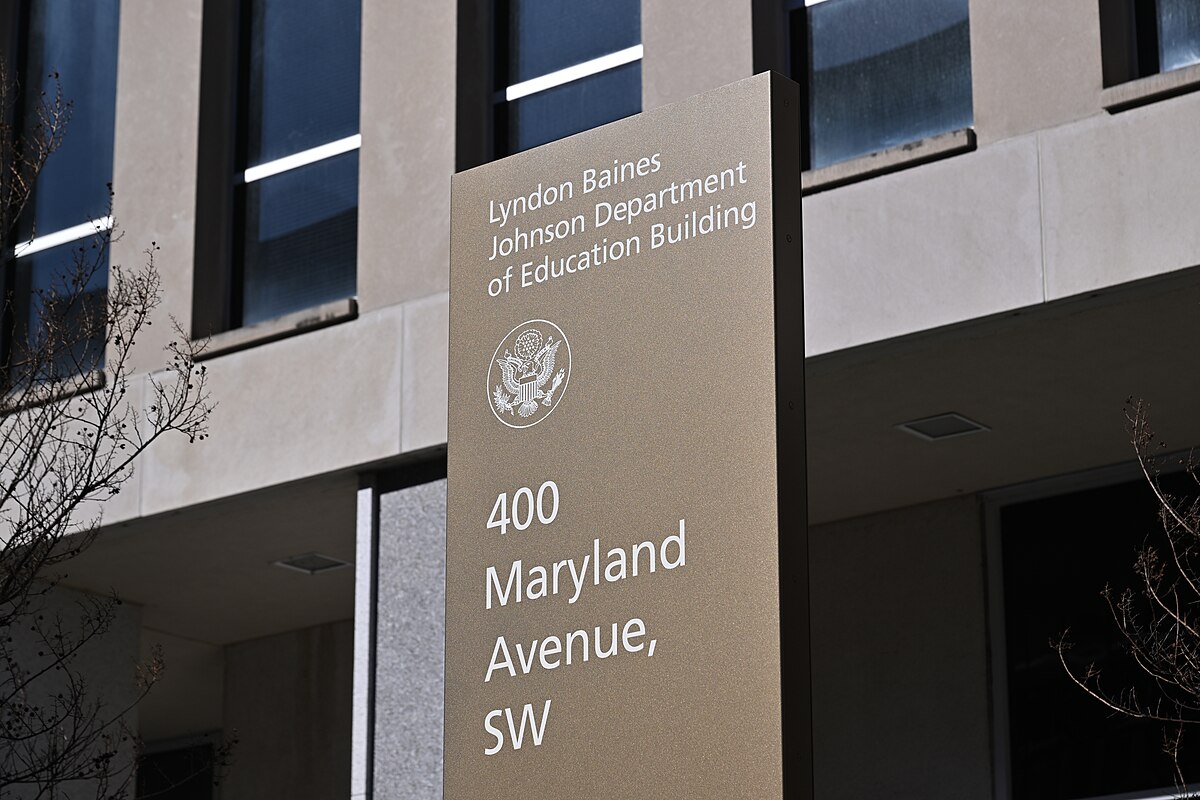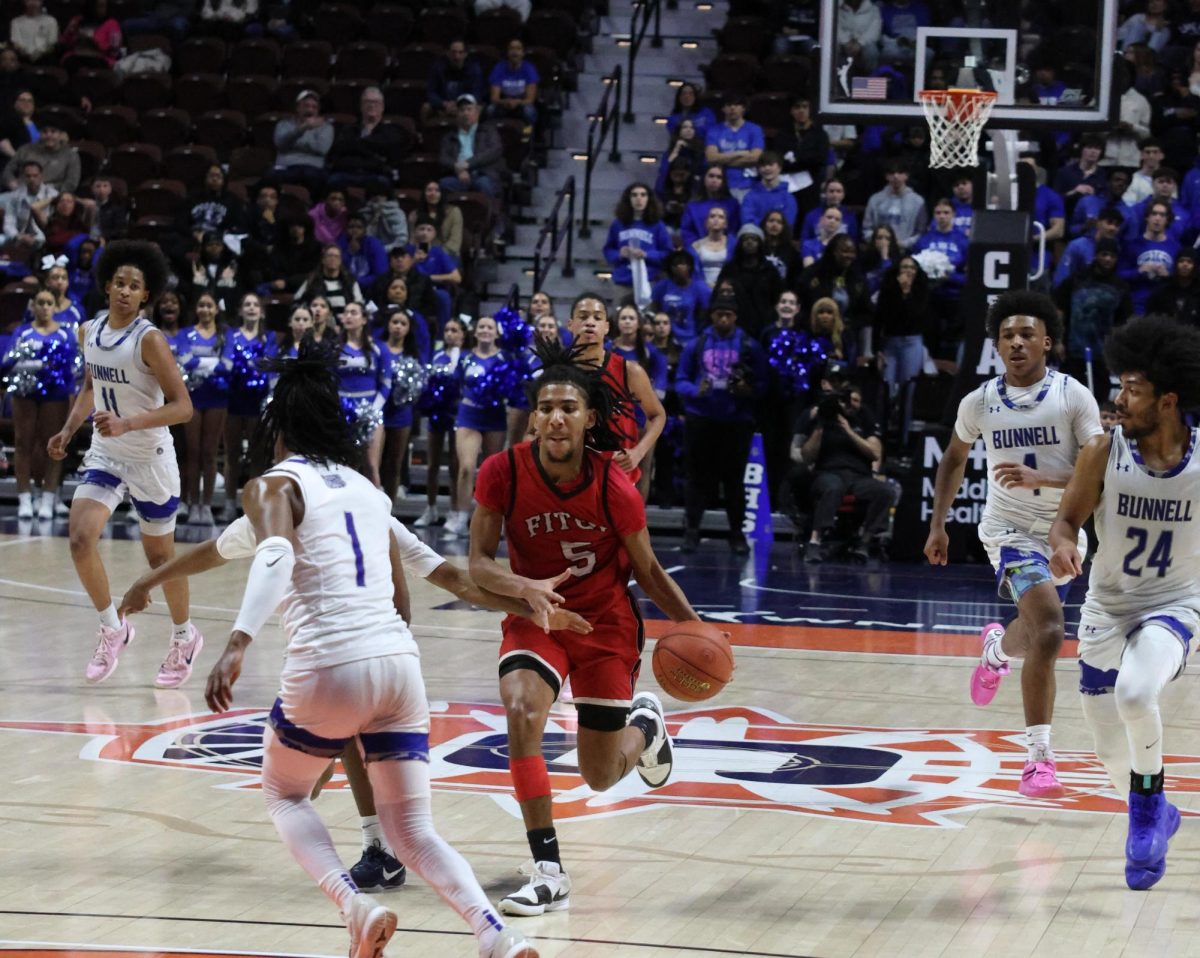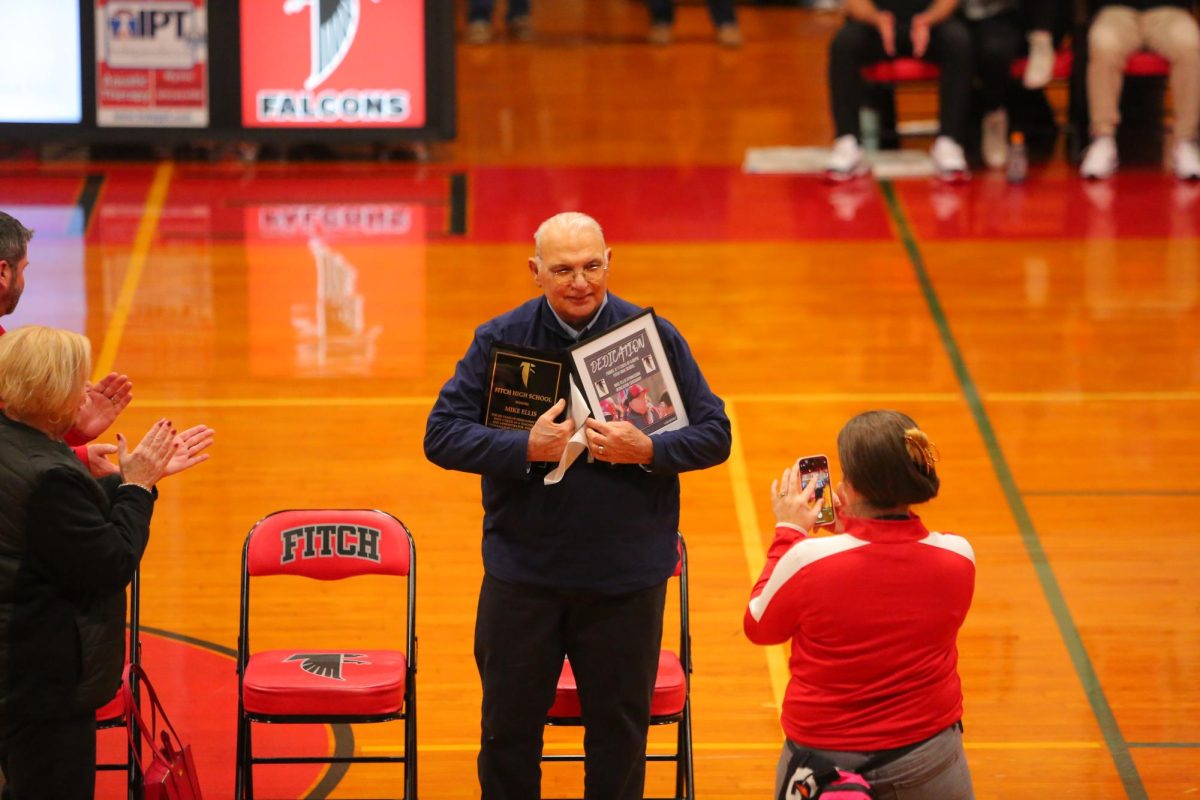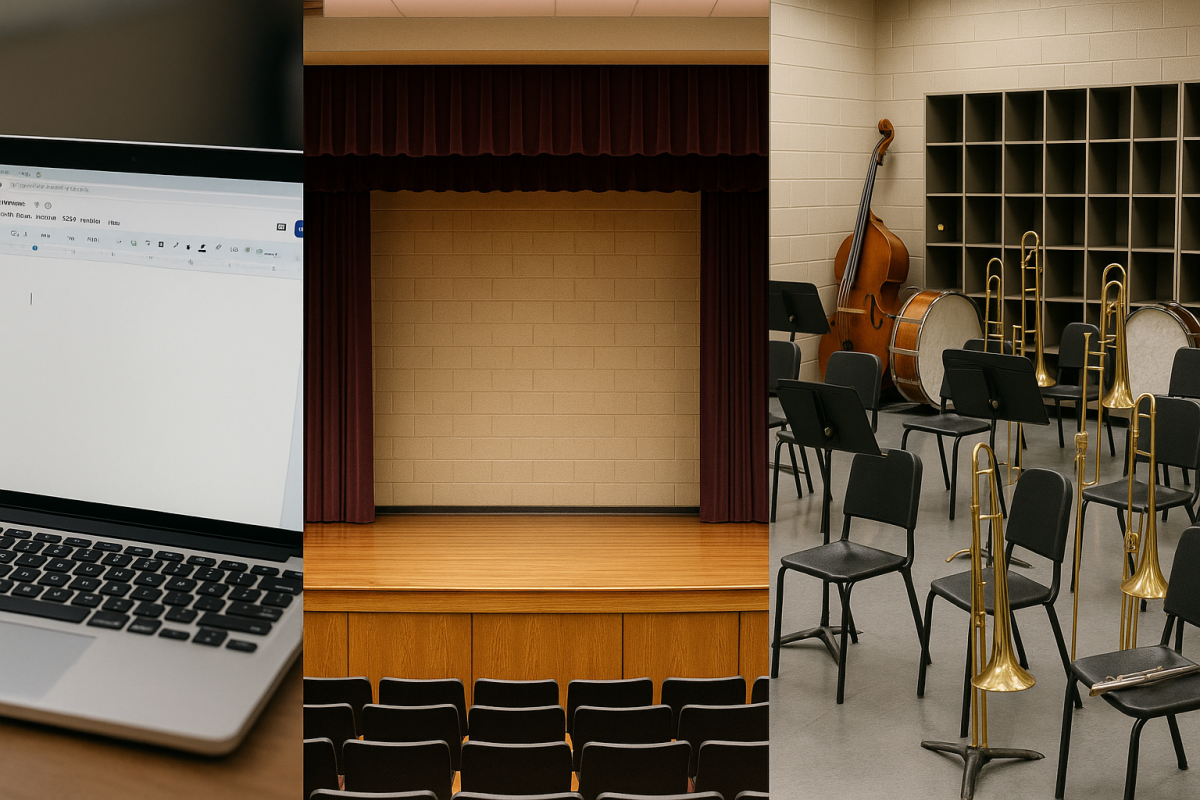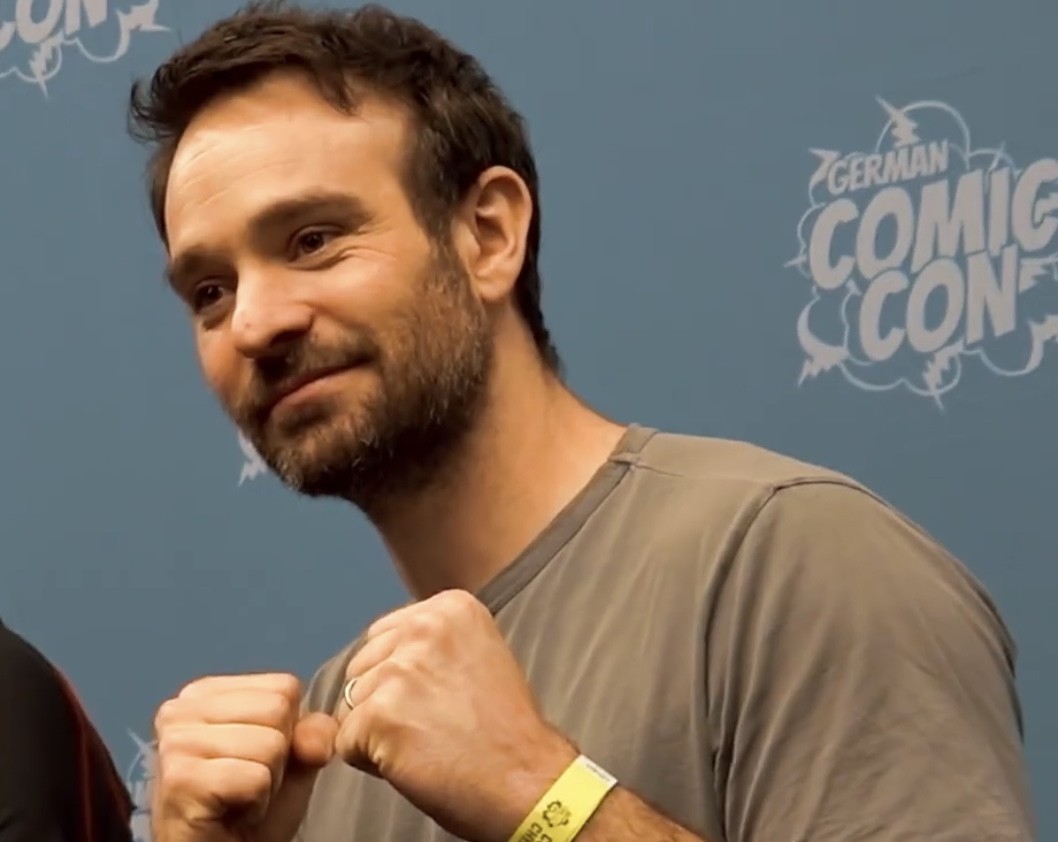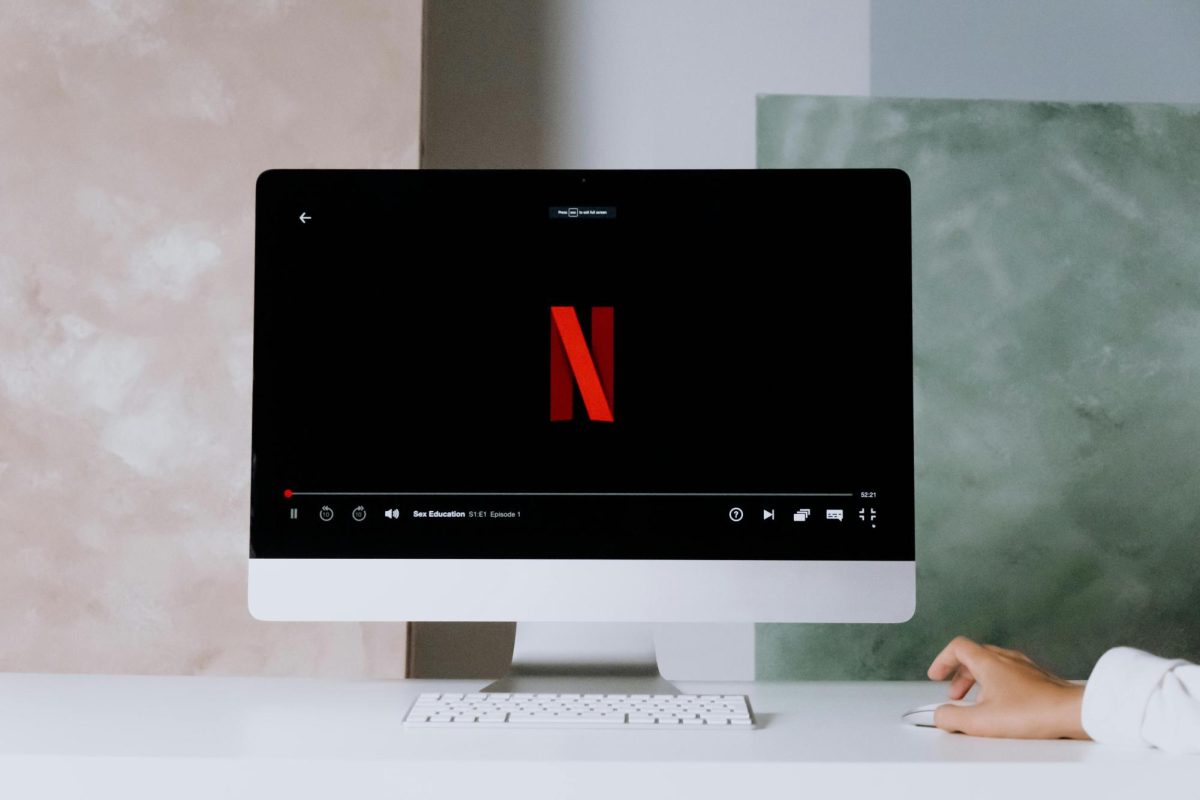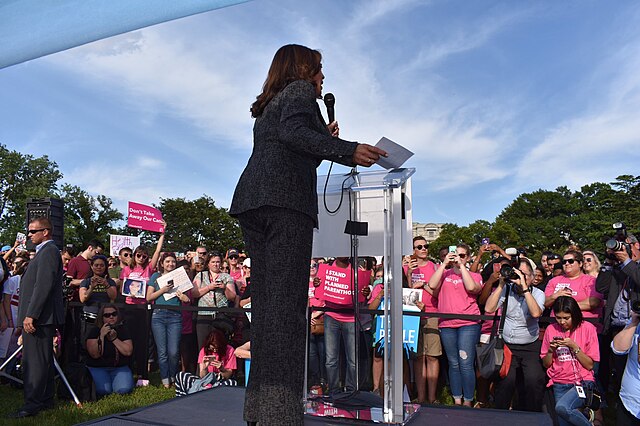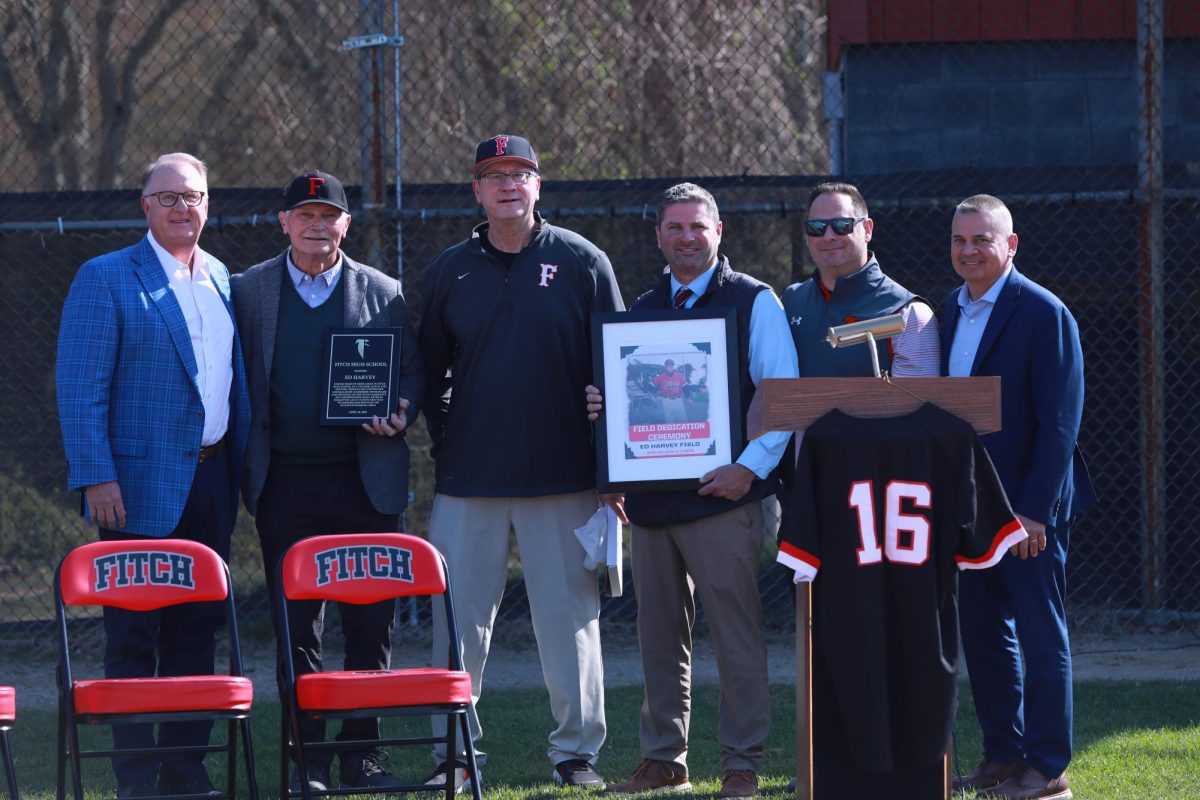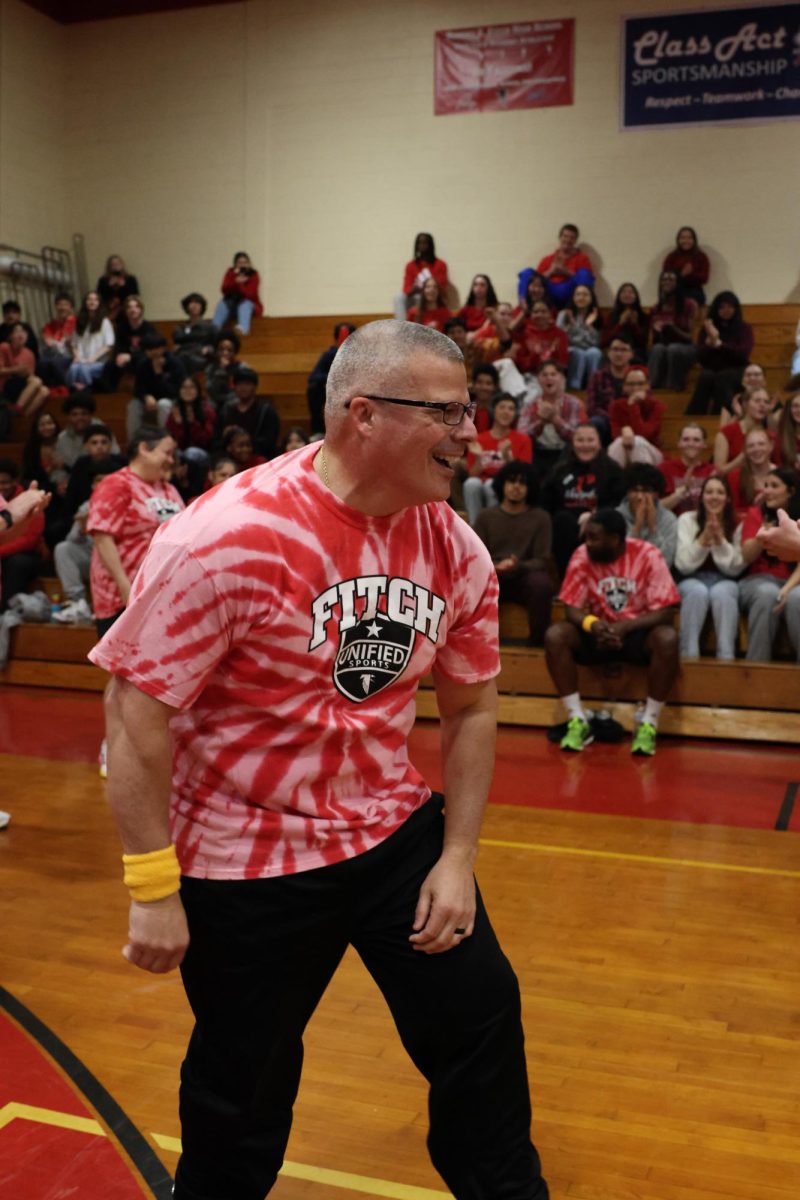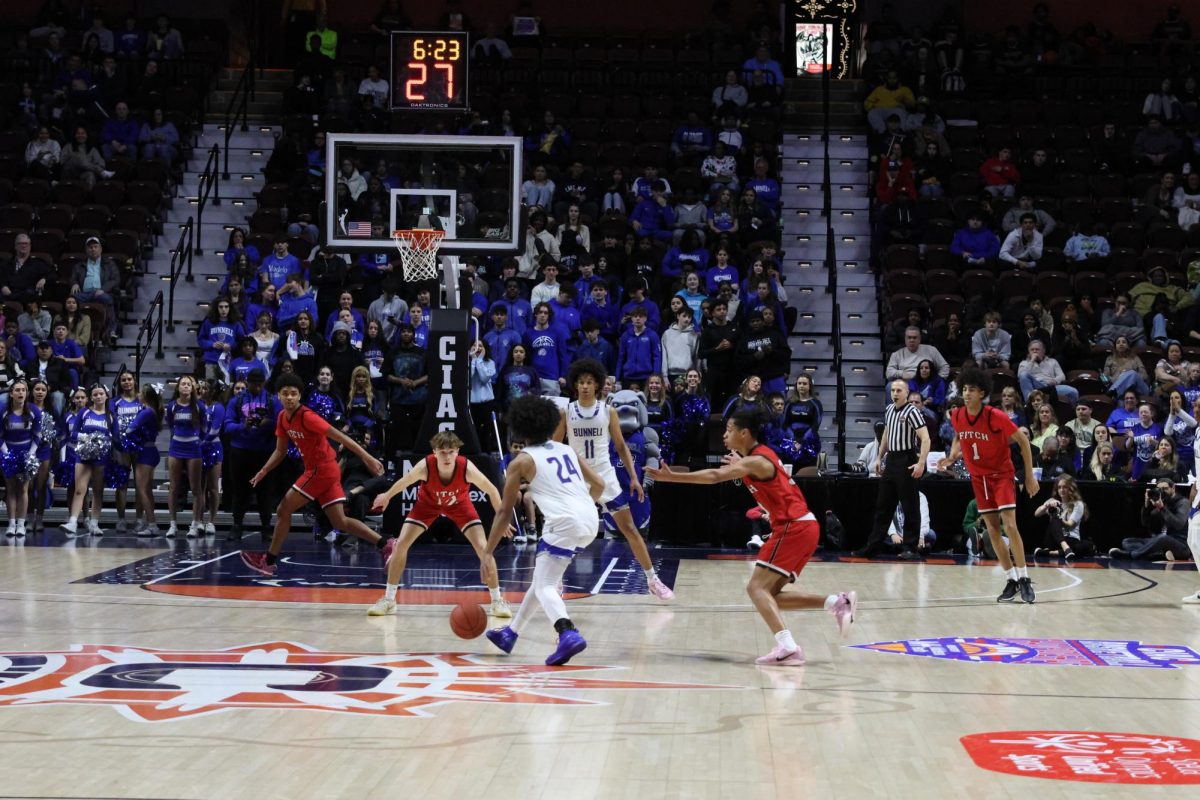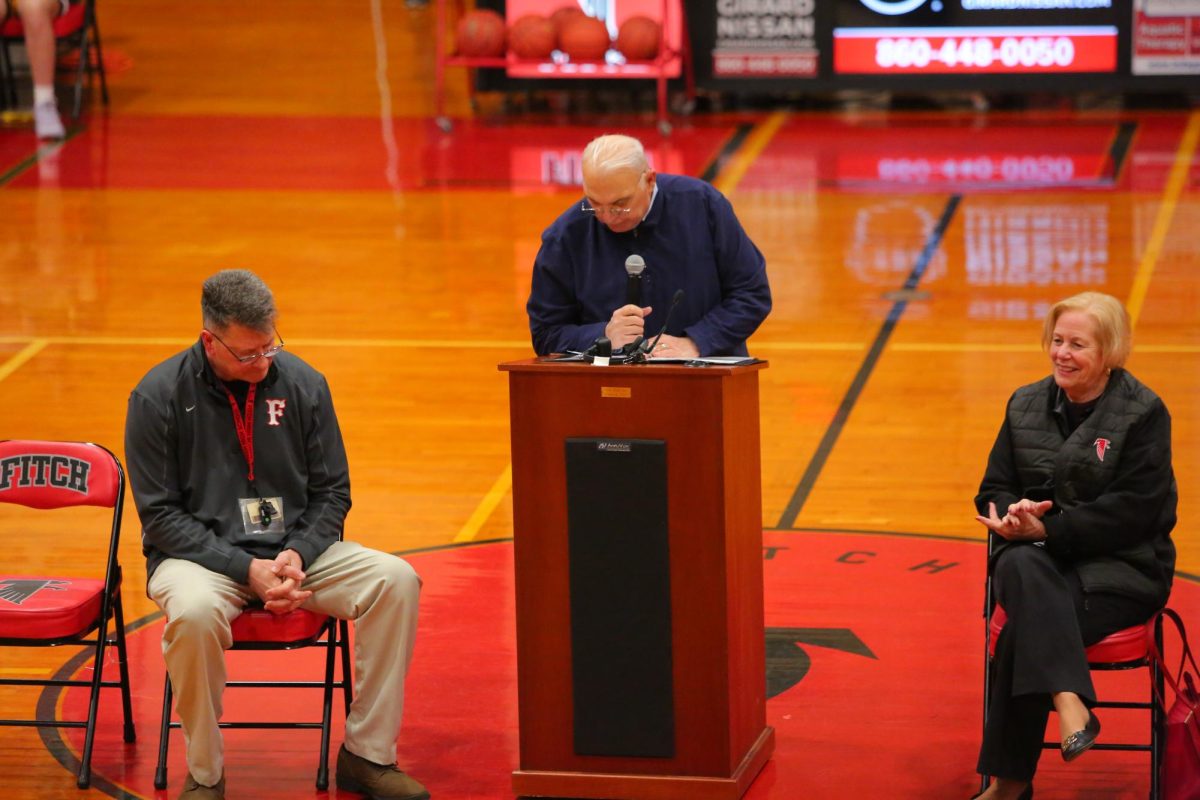Elizabeth Porter Strikes Back! Board of Education Election is Nov. 5
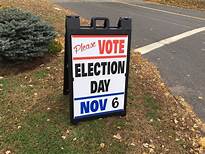
October 24, 2019
Elizabeth Porter launched her campaign for a position on the Groton Board of Education earlier this month. Elizabeth Porter – Mrs. Porter to hundreds of Fitch alumni and alumnae – has actively served the realm of education for decades, impacting students as an administrator, organizer, and as a teacher. For more than thirty years, she has played an instrumental role in the lives of students in Groton schools, teaching from as young as elementary school to high school. After the 2017-2018 academic school year, she decided to retire from teaching  and focus on pressing personal issues. Despite a few pleasant years of retirement, Mrs. Porter was not fond of sitting around doing nothing. With monumental enthusiasm, the former educator decided that the next phase of her career would involve seeking to serve the Groton community on the Board of Education.
and focus on pressing personal issues. Despite a few pleasant years of retirement, Mrs. Porter was not fond of sitting around doing nothing. With monumental enthusiasm, the former educator decided that the next phase of her career would involve seeking to serve the Groton community on the Board of Education.
The Board of Education is comprised of nine locally elected officials. It is important to note that this board is not a state or federal body; rather, this panel is specifically intended to handle local affairs pertaining to the district’s educational policies and curricula. Here in Groton, our Board of Education’s nine elected members include two student ambassadors from Fitch High School. The Board of Education’s role in student life is much greater than most of us realize, as they control matters such as curriculum revisions, education budgets, renovations within the schools (ranging from the floor tiles to new water fountains), funding for the arts, sports, academic competitions, and so much more. These members play a paramount part in our everyday lives at Fitch and have the sole aim of crafting a safe and educational environment for Groton students.
The Falcon Press invited Mrs. Porter back to the nest here at Fitch for an interview regarding her candidacy. I met her at the security booth after school one Friday evening and she wasted no time catching up with her former colleagues. I almost had to pull her by the ear like my grandma used to do to me to get her to the conference room! All jokes aside, it was evident from her body language and interaction with others that Mrs. Porter was energized, passionate, and ecstatic to return to a place she once called home. This was Mrs. Porter’s first formal interview in regards to her campaign and it lasted nearly an hour. I was truly honored to be given the opportunity to conduct this interview, as we discussed crucial issues ranging from racial disparity in advanced courses and the International Baccalaureate program to the challenges the Groton district may face in the coming years.
Last year, the Falcon Press conducted a statistical investigation as to whether or not there was an association between a student’s race and their enrollment in higher-leveled classes (Honors, AP, IB). Afterwards, we teamed up with the Black Student Union and hosted a public after-school event for students and staff to have a discussion about the existing racial disparity in the classroom. With lower rates of people of color entering AP/IB programs in comparison to those that are white, it poses a pivotal ethical concern for the future of Fitch and minority groups. We brought this pressing matter to Mrs. Porter’s attention and asked for her thoughts and solutions to remedy this issue:
Kyle: “If elected to the Board of Education, how would you promote racial diversity in not only the school, but also in classrooms?”
Elizabeth Porter: “The key to an IB program, or any high level program, is gotta be your elementary and middle schools. You have to promote higher level expectations. You have to present a challenging, yet attainable, educational opportunity for them. So your PYP and MYP works very well for that and you have to give everyone, no matter where they live, the opportunity to do this. The thing that stands in the way sometimes are personal choices. That is something that is difficult to change and so you have to look at it in my opinion…at how you can promote this not as just juniors and seniors, but how can you get your parents on board and how can you pull those families in? You need to do parent outreach. You need to do family outreach…I went to every middle school…We have to show them the opportunity is there. They have to believe they have the ability, because they do. But you also need to remember that people evolve at different times…in social and emotional development…As long as we have quality educational opportunities for everyone, that’s the key…This is an old problem…that kids of color were not recognized at all. None…We have to change that climate, we have to show people of color they have those opportunities and that they are wanted. It comes in with communication and tolerance and understanding…Every school district is struggling with this and I think we just need to do outreach.”
Reading between the lines of Mrs. Porter’s response, the crux of her argument seems to be about the importance of parent outreach and student preparation at the elementary and middle schools. According to Mrs. Porter, parent outreach is a key component to enhanced student performance and academic excellence. By raising the consciousness of parents and students about the educational opportunities the district offers, a different social climate may begin to develop. The National Education Association (NEA) corroborates Mrs. Porter’s claim; parenting strategies that include taking an active role in a child’s education correlates with higher academic performance and school improvement. The NEA concluded, “When schools, parents, families, and communities work together to support learning, students tend to earn higher grades, attend school more regularly, stay in school longer, and enroll in higher level programs.” This supports the core of Mrs. Porter’s argument: parent outreach and community cooperation is essential to addressing the issue of racial disparity.
As a member of the IB program here at Fitch, I was intrigued to find out more about this candidate’s position on the IB program. In the past, Mrs. Porter served as Diploma Coordinator and taught IB History at Fitch. She is a proud advocate of the program due to its emphasis on a global education and its stress on tolerance, understanding, and preparing students for university life. During the interview, Mrs. Porter made several passionate comments about her support for the program,
Elizabeth Porter: “They’re [the IB program] giving the kids an international global education, which is imperative in this society today. I thoroughly believe that globalization…IB gives us that connection. If we want to compete economically, socially, politically, we need to be a global society but maintain our American identity.”
It is true that the International Baccalaureate Diploma Program provides students with an internationally minded curriculum, as it compels students to delve deeply into literature, social context, global implications, and much more. The ability to apply a problem or solution to a global perspective is imperative, especially in this day and age where globalization is rapidly increasing. Some voices, especially in our town, question the necessity of the IB program due to its high costs and low student enrollment rate. Some parents think it is unfair that the district spends so much on the program when it benefits so few. When asked about this, Mrs. Porter responded,
Elizabeth Porter: “I think the biggest thing is… we need more exchange between other IB schools and our IB school…I think, like I said, experiential learning is invaluable and I think once kids see how other kids are…I think it is a better buy-in…”
Mrs. Porter also mentioned several important issues that are key elements of her campaign. As a former social studies teacher and current political activist for the Groton Democrats, she constantly reiterated the importance of civic duty and youth involvement in 21st century politics. Today, there is a lack of participa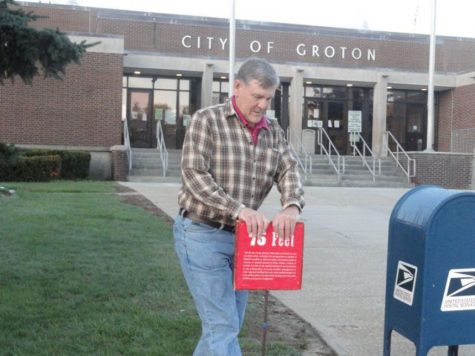 tion amongst young voters; low rates of youth voting continue to dwindle in comparison to older (age 35+) voting. Mrs. Porter believes that to remedy this situation, a strong Civics curriculum is necessary:
tion amongst young voters; low rates of youth voting continue to dwindle in comparison to older (age 35+) voting. Mrs. Porter believes that to remedy this situation, a strong Civics curriculum is necessary:
Elizabeth Porter: “One of my primary things…I want stronger, a good solid, full year civic and government curriculum and I would like to see it in the senior year…I want Civics to stop taking a back seat and I want it a full credit…”
Currently, Fitch High School requires a half of a semester for Civics, taking place primarily during a student’s junior year. Students are given the opportunity to complete a half-semester Civics course or a full year of AP Government–a stressful decision for many students.
I found Mrs. Porter’s assertion that Civics should be offered as a necessary full year course in high school compelling. It is imperative that teenagers be informed about local, state, and national politics, as the decisions of elected officials do play a major role in our lives. Not only is civic education vital for our society, but so is participation. Since Mrs. Porter wants to see Civics as a full-year course during a student’s senior year, it would facilitate an effective voter registration unit for seniors that are nearly or already 18 years old. However, while I expressed support for the idea proposed by the candidate, I also acknowledged it would be difficult to implement for certain students. For example, many students are unable to fit a full year of Civics into their schedule, especially during senior year. As a full diploma student in the IB program, I know on a firsthand basis the difficulty of squeezing classes into a schedule around six to seven required IB courses. These are simply a number of confounding variables that must be taken into account if this proposal is in the air.
Throughout the interview, Mrs. Porter emphasized her passion for education and for this office. She had retired, but she did not like sitting on the sidelines: “I’m doing this because I feel called to do this,” she stated emphatically. Educating, teaching, and leading have always been callings for her, and this time is no different.
Mrs. Porter’s campaign has been launched for some time now and she has been hitting the campaign trail daily. Here with the Falcon Press, she wrapped up her interview by saying, “There is a passion and I work very hard. I will always work hard for kids, that’s just who I am…I want Groton kids to be ready for life…A high school is a lighthouse of a school district and how we do up here reflects on everybody below.” Mrs. Porter’s campaign revolves around the importance of learning and reform, but most importantly: the students themselves. As the campaign heats up, it is important that young adults and other locals get out and vote. When election day comes about on November 5th, be sure to head out to your local polling area and fulfill your civic duty!
Some of the information included in this article was retrieved from: http://www.nea.org/assets/docs/PB11_ParentInvolvement08.pdf

